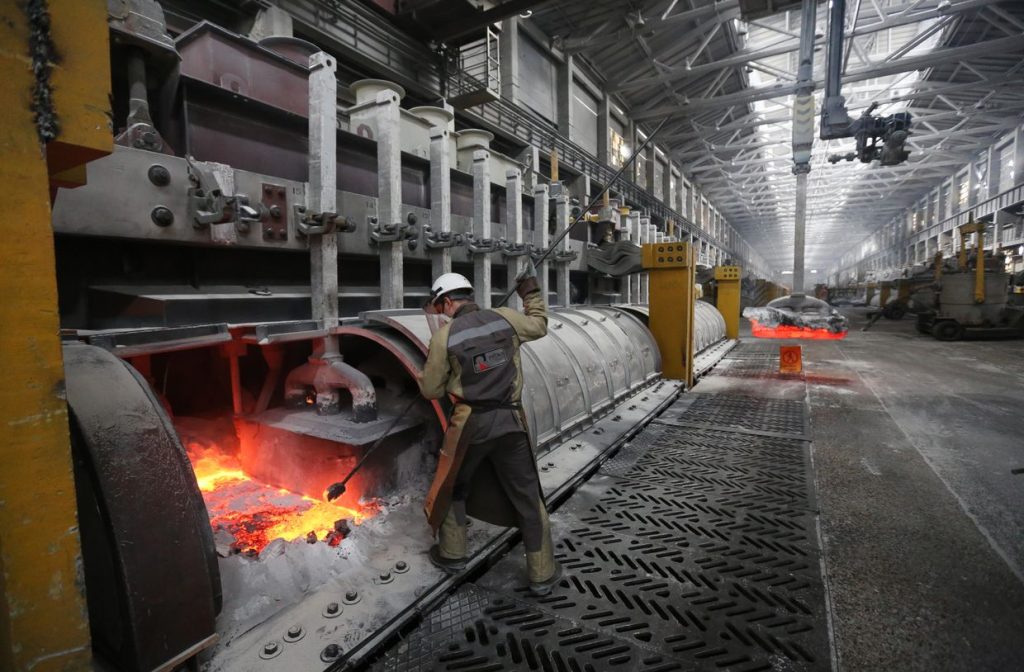The United States and the United Kingdom have announced a ban on Russian exports of aluminum, copper, and nickel from the world’s largest metal exchanges, the London Metal Exchange (LME) and the Chicago Mercantile Exchange (CME). This move is aimed at preventing the Kremlin from funneling more cash into its war machine in Ukraine. The U.K. introduced legislation to ban Russian metal imports in December 2023, and the U.S. announced tariffs on Russian aluminum in February 2023. The new sanctions will target $40 billion in Russian aluminum, copper, and nickel exports. The E.U. reportedly considered a similar ban on Russian aluminum but did not include it in their last round of sanctions approved in February 2024. Canada had also announced a ban on Russian aluminum and steel products in March 2023.
The U.S. Department of the Treasury’s Office of Foreign Assets Control (OFAC) is reportedly investigating several U.S. and foreign companies for supplying military-purpose chips that end up in Russia. This investigation comes amid concerns over the use of these chips in Russia’s war efforts. The sanctions imposed by the U.S. and U.K. on Russian metal exports are part of a broader effort to target the revenue Russia can earn to continue its brutal war against Ukraine. The new sanctions do not restrict the acquisition of Russian metals that are already on exchange in order to limit disruptions to markets. The ban on Russian metal exports from the LME and CME will deprive Russian metal producers of profits from these major metal exchanges.
The ban on Russian metal exports is a significant step in cutting off a key revenue source for Russia, as metals are the country’s second-largest export commodity after energy products. By blocking Russian metal producers from accessing the London Metal Exchange and the Chicago Mercantile Exchange, the U.S. and U.K. are aiming to put pressure on the Kremlin and prevent further funding of the war in Ukraine. The coordinated action between the U.S. and U.K. demonstrates a united front against Russian aggression and sends a strong message to Moscow about the consequences of its actions.
The decision to ban Russian metal exports is part of a wider effort to isolate Russia economically and limit its ability to finance its military operations. The U.S. and its allies are exploring various avenues to sanction Russia and disrupt its economy in response to the ongoing conflict in Ukraine. By targeting key sectors like metals, the U.S. and U.K. are leveraging their economic power to impose consequences on Russia for its actions. This approach is part of a broader strategy to pressure Russia to end its aggression and seek a peaceful resolution to the conflict in Ukraine.
The investigation into companies supplying military-purpose chips to Russia highlights the importance of monitoring and regulating the supply chain to prevent the flow of sensitive technologies to conflict zones. The U.S. Department of the Treasury’s Office of Foreign Assets Control is taking action to hold companies accountable for enabling Russia’s war efforts by supplying components that could be used for military purposes. This underscores the need for greater oversight and regulation of exports to ensure that sensitive technologies do not end up in the wrong hands. By investigating and sanctioning companies that violate these regulations, the U.S. is sending a clear message that it will not tolerate the exploitation of U.S. technology for military purposes in conflict zones.
Overall, the ban on Russian metal exports and the investigation into companies supplying military-purpose chips to Russia are part of a broader effort to counter Russian aggression and support Ukraine in its fight for sovereignty. The coordinated actions by the U.S., U.K., and other allies demonstrate a commitment to holding Russia accountable for its actions and imposing consequences for its destabilizing behavior. As the conflict in Ukraine continues, international pressure will continue to mount on Russia, with measures like sanctions and investigations playing a key role in shaping the response to the crisis. By standing together and supporting independent journalism, individuals can contribute to the global effort to uphold democratic values and defend the sovereignty of nations against aggression.















